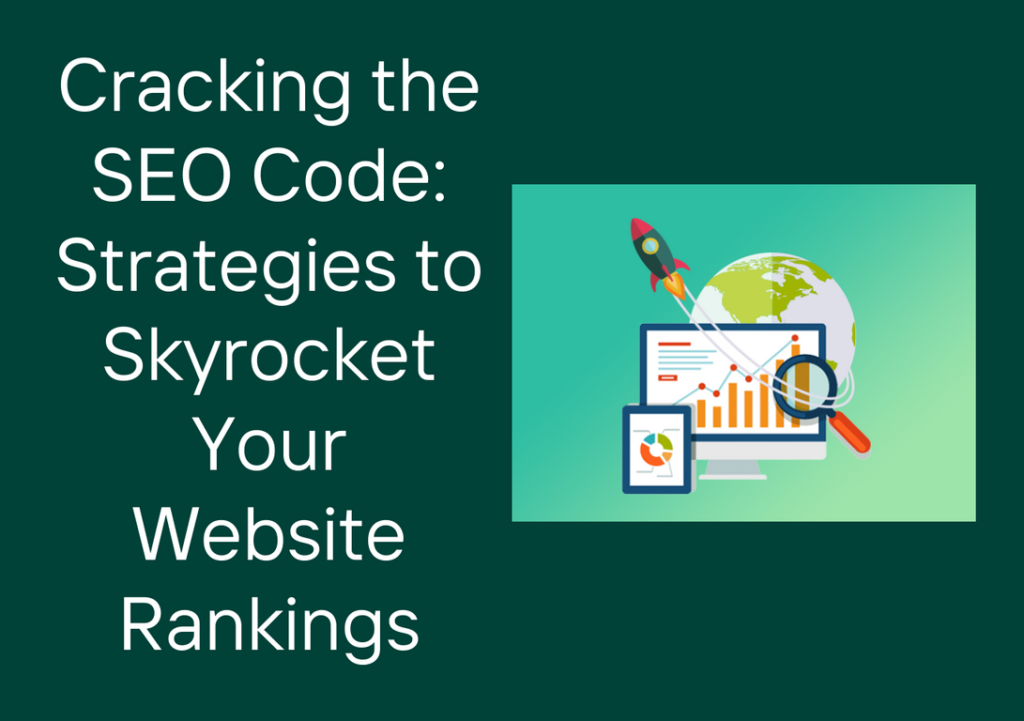In the vast and ever-evolving digital landscape, search engine optimization (SEO) remains an indispensable tool for businesses and website owners. If you want to be found on the internet, you need to understand and implement effective SEO strategies. This blog post will guide you through the essentials of SEO and provide actionable tips to help you improve your website’s rankings.
Understanding the SEO Puzzle
SEO is the art and science of optimizing your website to improve its visibility in search engine results pages (SERPs). When someone searches for a keyword or phrase related to your business or content, you want your website to appear at the top of the results. But how do search engines decide which websites deserve those coveted top spots? It all comes down to a complex algorithm that evaluates a multitude of factors, including:
- Content Quality: The content on your website needs to be valuable, relevant, and well-structured. It should provide answers to users’ queries and satisfy their needs.
- Keywords: Identifying and using the right keywords in your content is crucial. Keyword research helps you understand what terms your target audience is searching for.
- On-Page SEO: This includes optimizing your titles, headings, meta descriptions, and URLs to make them search-engine friendly.
- Backlinks: Quality and quantity of backlinks from other reputable websites signal your website’s authority and trustworthiness.
- User Experience (UX): Search engines favor websites that offer a seamless, user-friendly experience. Factors like page load speed and mobile-friendliness matter.
- Technical SEO: This involves optimizing your website’s technical aspects, like improving site speed, fixing broken links, and creating a sitemap.
Now, let’s explore some strategies to help you skyrocket your website rankings.
1. Keyword Research and Optimization
Start by identifying relevant keywords for your niche. Tools like Google Keyword Planner or SEMrush can assist you in finding keywords with high search volume and low competition. Once you have your keywords, strategically incorporate them into your content, but be careful not to overuse them (keyword stuffing can have a negative impact).
2. High-Quality Content
Content is king in the world of SEO. Create valuable, engaging, and informative content that addresses the needs and questions of your target audience. Consistently update and add fresh content to keep your site relevant.
3. On-Page SEO
Optimize your page titles, meta descriptions, and URLs to include your target keywords. Make sure your content is well-structured with appropriate heading tags (H1, H2, H3, etc.).
4. Build Quality Backlinks
Earning backlinks from authoritative and relevant websites is a significant SEO factor. Reach out to industry influencers, collaborate on guest posts, or create shareable content to naturally attract backlinks.
5. Mobile Optimization
With an increasing number of users accessing the web through mobile devices, mobile optimization is critical. Ensure your website is responsive and offers a seamless mobile experience.
6. Speed and Technical Improvements
A fast-loading website not only enhances user experience but also improves SEO rankings. Optimize images, use browser caching, and minimize HTTP requests to boost your site’s speed.
7. Regular Audits and Updates
SEO is an ongoing process. Regularly audit your website for broken links, outdated content, and technical issues. Keep your site up-to-date with the latest SEO best practices.
8. User Experience (UX)
A positive user experience can significantly impact your SEO. Easy navigation, clear calls to action, and well-organized content all contribute to a better user experience.
Conclusion
Cracking the SEO code takes time, dedication, and a comprehensive understanding of the ever-changing search engine algorithms. By following these strategies, you’ll be well on your way to improving your website’s rankings and attracting more organic traffic. Remember, SEO is a long-term investment that can yield significant results over time. Stay up-to-date with the latest trends, adapt your strategies accordingly, and watch your website soar in the search rankings. Your online success is just a few SEO strategies away!
For further Inquires Contact Us
FAQs:
1. What is SEO, and why is it important for my website?
- SEO stands for Search Engine Optimization. It’s crucial for your website because it helps improve its visibility on search engines like Google. This increased visibility can drive more organic traffic, leading to potential customers or readers finding your content or products.
2. How can I find the right keywords for my website?
- You can use tools like Google Keyword Planner, SEMrush, or Ahrefs to identify relevant keywords. Research your niche, target audience, and industry trends to choose keywords with high search volume and low competition.
3. Is it necessary to update my content regularly for SEO?
- Yes, regularly updating and adding fresh, high-quality content is essential for SEO. It keeps your website relevant and signals to search engines that your site is active and valuable to users.
4. What’s the difference between on-page and off-page SEO?
- On-page SEO involves optimizing elements on your website, like content, titles, and meta descriptions. Off-page SEO focuses on activities outside your website, like building backlinks from other websites.
5. How long does it take to see results from SEO efforts?
- SEO is a long-term strategy, and results can vary based on factors like competition and the quality of your efforts. It may take several months to a year to see significant improvements in your website’s rankings.
